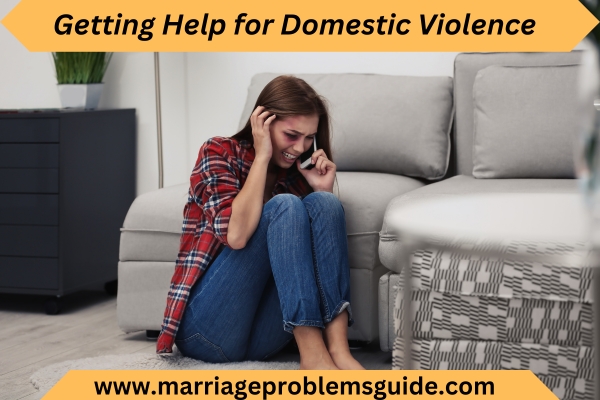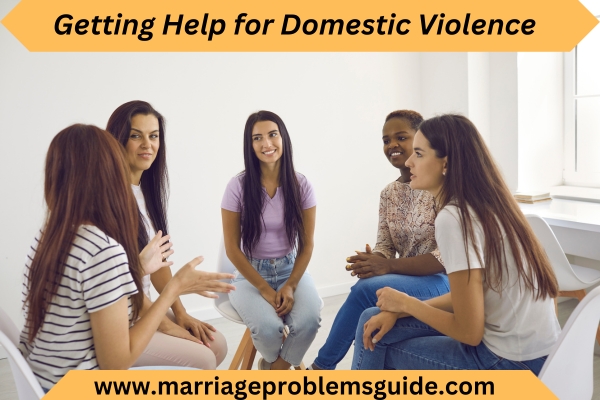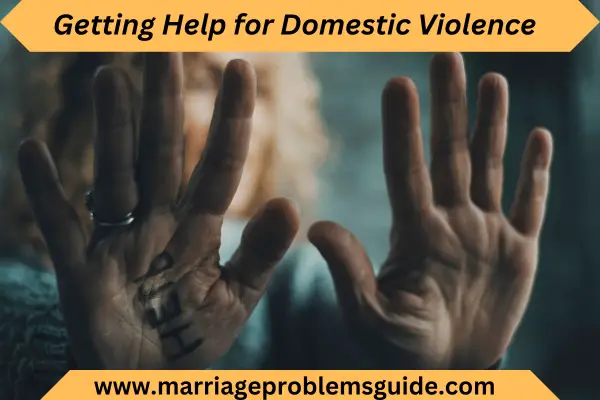Getting Help for Domestic Violence
Domestic violence affects millions of people worldwide, regardless of age, race, gender, or socioeconomic status. If you or someone you know is experiencing domestic violence, it’s critical to know that help is available.
In this blog article, we will provide an overview of domestic violence, its warning signs, and, most importantly, how to get help if you’re in an abusive relationship.
What is Domestic Violence?
Domestic violence, also called intimate partner violence, includes any threatening behavior, violence, or abuse between romantic partners or family members. While both men and women can be victims or perpetrators, women are disproportionately affected.
According to the CDC, 1 in 4 women and 1 in 10 men in the U.S. have experienced contact sexual violence, physical violence, or stalking by an intimate partner. Additionally, domestic violence hotlines nationwide receive over 20,000 calls on a typical day.
Domestic violence can take many forms, including:
- Physical abuse like hitting, slapping, punching, shoving, strangling, or using weapons
- Sexual abuse, including rape, coercion into unwanted sexual acts, or restricting access to birth control
- Emotional or psychological abuse, such as threats, name-calling, isolation from friends and family, or controlling behaviors
- Financial abuse by restricting access to money or preventing employment
- Digital abuse through stalking, harassment, or embarrassment on social media

Signs of Domestic Violence
Domestic violence often escalates over time. While every situation is unique, some common warning signs may indicate an abusive relationship:
- Controlling or demanding behaviors like checking your phone, telling you what to wear, or restricting contact with friends/family
- Jealousy, possessiveness, or accusations of cheating
- Explosive outbursts of anger or rage
- Threats of violence or suicide
- Blaming you for their abusive behavior
- Isolation from friends, family, or regular activities
- Monitoring your whereabouts
- Stalking behaviors
- Physical injuries like bruises or broken bones
- Fearfulness, anxiety, depression, or changes in sleep/eating patterns
If you see warning signs in your relationship or intuition that something is wrong, don’t ignore them. Trust your instincts and know you deserve to feel safe, respected, and free from fear.
Getting Help If you are experiencing domestic violence, knowing that you are not alone and that support is available is critical. While leaving an abusive relationship may seem overwhelming, taking small steps to get help can lead to safety and freedom. Here are some ways to get help:
Contact a Domestic Violence Hotline
Domestic violence hotlines provide 24/7, confidential crisis intervention and safety planning. Speaking with a trained advocate can help you process the situation, know your options, and develop a plan to get free.
Call the National Domestic Violence Hotline at 1-800-799-7233 or visit thehotline.org to chat online with an advocate or find local resources.
Develop a Safety Plan
A safety plan empowers you to leave an abusive situation safely when the time is right. Safety plans include collecting essential documents, setting aside emergency funds, packing a bag, identifying a safe place to go, and more. Hotline advocates can assist you in creating a customized safety plan.
Identify a Support System
Reaching out to trusted friends, family members, coworkers, faith leaders, or domestic violence advocates is crucial.
A robust support system can help validate your experience, provide emergency housing if needed, and assist you. Lean on your support network as you take steps towards safety.

Obtain a Protective Order
Getting a restraining order or protection order is a legal way to prohibit your abuser from contacting, harassing, or approaching you. An advocate can explain the process and even accompany you to court.
While protective orders cannot guarantee safety, having one advances your legal protection.
Contact Law Enforcement
If you are in immediate physical danger, call 911. Police can respond to scenes of violence and assist victims in getting medical care and emergency shelter if desired. Be aware that mandatory arrest laws require officers to arrest if there is probable cause that domestic violence occurred.
Seek Medical Care
If you have injuries, go to a hospital or doctor for treatment. Ask that they document your visit and take photos of damages for legal purposes. Hospitals can also connect you with additional support services.
Contact an Attorney
Consult with a family law attorney who has experience with domestic violence cases. An attorney can advise you on legal options related to divorce, child custody, protective orders, immigration status, and more. Many domestic violence agencies have pro bono legal partnerships.
Find Transitional Housing
Transitional housing programs provide temporary accommodations and supportive services for survivors and their children as they rebuild their lives after leaving an abusive home. This secure housing option allows you to save money and plan your next steps.
Get Individual Counseling
The trauma of domestic violence can have lasting effects. Connecting with a trauma-informed therapist or counselor allows you to process the abuse, boost self-esteem, and develop healthy coping mechanisms. Most domestic violence organizations offer free counseling programs.
Attend a Support Group
Support groups led by domestic violence advocates or peers provide a judgment-free space to share experiences, find understanding, and exchange practical information on navigating life after abuse. Attending groups reduces isolation and validates that you are not alone.
Prioritize Self-Care
Practicing self-care is crucial when recovering from domestic violence. Make time for activities that promote relaxation and healing, like journaling, exercising, spending time in nature, or engaging in hobbies. Take things one day at a time and celebrate small wins.
Leaving an abusive relationship takes courage, but support is available. You can regain your freedom and start fresh by utilizing domestic violence hotlines, shelters, legal protections, counseling, and other resources.
With the right help, a life free from violence is possible. Learn here more about domestic violence guides and tips.


